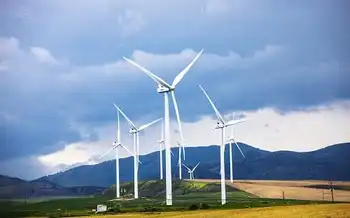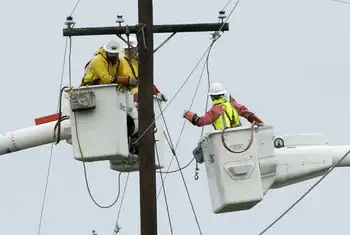CIBC forms team to focus on green energy
TORONTO, ONTARIO - CIBC has become the first major Canadian bank to form an investment team focused on green energy and clean technology markets, forging a path that industry experts say is likely to be followed by its bigbank rivals.
Canadas fifthlargest bank announced it has appointed Don Roberts, a former managing director and forestry analyst at CIBC World Markets Inc., as vicechairman of the new wholesale banking team.
Roberts told the Star the decision sends a clear signal to the market and internally at the bank that renewable energy and clean technologies are more than a passing investment fad.
Were really looking at a structural change in the economy to lowcarbon energy sources, he said. So this isnt just to take advantage of a short cycle. This is a longterm move for us.
The 10person team plans to offer a range of wholesale services, including preIPO private placements, project financing, public equity issues and corporate loans. It will also advise on mergers and acquisitions.
Tom Rand, head of the clean technology practice at Torontos MaRS Discovery District, said CIBCs plan to more aggressively pursue the market – including everything from solar and wind projects to water technologies to biochemical production – could send ripples through the sector.
The big banks dont like to put their foot out first, but they also like to move in lockstep, said Rand. CIBC making the first move will certainly force the other four to move.
The big banks have dabbled, but as Roberts explained, most of the activity has taken place in silos and not as part of a coordinated plan. For this reason, Canada banks have been labelled laggards relative to their European peers.
The opportunities of getting into the game now are still enormous. Bloomberg New Energy Finance estimates that global expenditure on renewable energy projects alone will reach $150 billion US in 2020, up from $90 billion in 2009. By 2030, the research firm predicts the market will reach $200 billion.
Progressive provincial policies in Canada, including Ontarios Green Energy Act and feedintariff program and B.C.s carbon tax and forthcoming Clean Energy Act, are creating a long pipeline of renewable energy projects that will need billions of dollars in financing.
Meanwhile, venture investments are on the rise again after being hammered in 2009. Clean technology companies raised $1.9 billion during the first quarter of 2010, up 29 per cent from the previous quarter and 83 per cent from the same period a year ago, according to market research firm Cleantech Group.
Roberts said only $35 million in venture capital was raised by Canadian companies in the quarter. Its not great, he said. Clearly in Canada finance has been a problem. The whole financial community has to educate itself on this.
Nicholas Parker, cofounder and executive chairman of the Cleantech Group, called CIBCs new focus on the market timely. He said theres no reason Toronto cant become North Americas top centre for ecofinancing, in the same way Canadas largest city is the continents mining finance capital.
This CIBC announcement can be the thing that sparks it, said Parker.
The Toronto Stock Exchange is getting ready. The parent company of Canadas senior stock exchange announced that it had partnered with creditrating agency Standard & Poors to create a new clean technology index.
Roberts said CIBC plans to recruit for this new index. Clearly our focus will be Canadian, but also taking other technology companies in the U.S. and elsewhere and bringing them to the TSX.
Added Roberts: I feel passionately that theres opportunity here.
Related News

B.C. Hydro adds more vehicle charging stations across southern B.C.
VANCOUVER - B.C. Hydro is expanding its network of electric vehicle charging stations.
The Crown utility says 28 new stations complete the second phase of its fast-charging network and are in addition to the 30 stations opened in 2016.
Thirteen of the stations are in Metro Vancouver, seven are on Vancouver Island, including one at the Pacific Rim Visitor Centre near Tofino, another is in Campbell River, and two have opened on the Coquihalla Highway at the Britton Creek rest area.
A further six stations are located throughout the East Kootenay and B.C. Hydro says the next phase of its program will connect…




